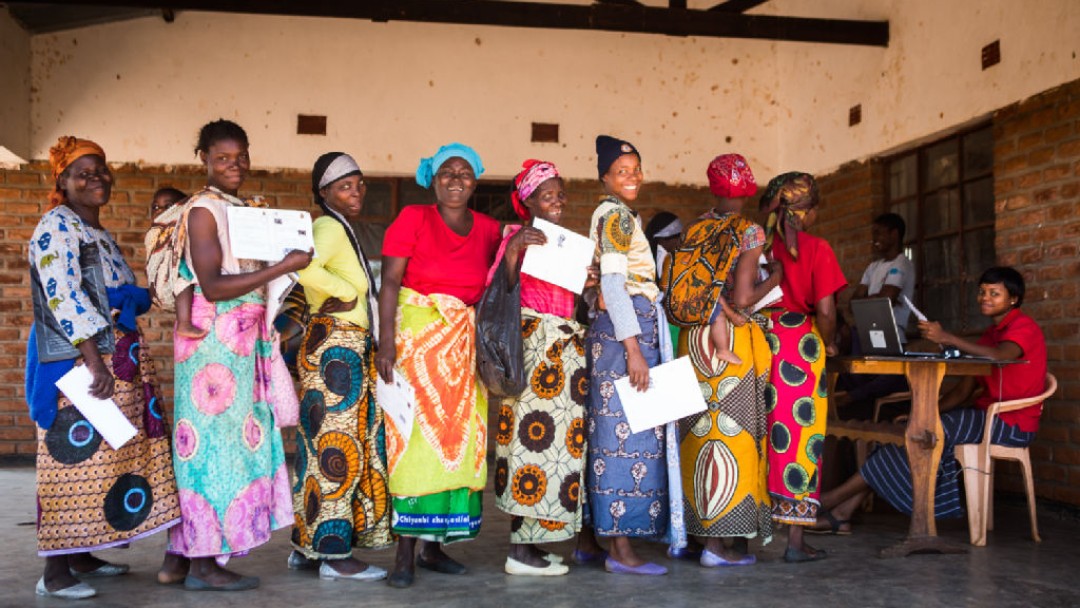
Social security systems help reduce social inequalities through redistribution. Through the Social Cash Transfer Programme (SCTP), very poor families in Malawi receive regular direct payments to cover their daily basic needs and pay for their children’s school attendance.
Malawi is one of the poorest countries in the world. It ranked 172 out of 189 countries in the United Nations’ Human Development Index in 2019. According to the national standard, 50.7% of the population live in poverty and 24.5% are classified as “ultra-poor”. Around 10% of the population are even considered “ultra-poor” with “limited working capacity”. They cannot work for various reasons, for example because they are too young, too old, too ill, have disabilities or because they often have to take care of a large number of family members. These households face a constant threat to their existence. It is almost impossible for these people to escape poverty on their own.
As a result, KfW has been participating in a social programme for these families on behalf of the German Federal Ministry for Economic Cooperation and Development (BMZ) since 2012 and the European Union (EU) since 2014: they receive regular and unconditional cash payments that secure their livelihoods. The “cash transfers”, which started in just a small number of provinces, are now happening all over the country. Every two months, households that meet certain criteria such as extreme need, limited working capacity, etc. receive an average of EUR 17. This enables them to finance the most basic necessities and prevents them from sliding into extreme poverty.
More than 130,000 households, or around 580,000 people, have benefited so far from KfW’s contribution of around EUR 160 million solely from BMZ and EU funds. External evaluations show that the programme has made an effective contribution to alleviating poverty and reducing inequality in Malawi. The recipient families eat more regularly, while more children go to school and stay in school longer overall. The improved living conditions also have a knock-on effect on their social lives. Young girls in recipient households are under less pressure to go into sex work to increase the household income or help to sustain themselves. In addition, there are fewer early pregnancies and health in general improved, with the under-five mortality rate falling. The number of households with assets such as livestock or land has grown, and their overall financial situation has improved.
The programme has also been a valuable and effective means of support for the poorest people during the coronavirus pandemic – this group is exposed to a higher risk of infection and is more likely to be severely affected by the disease due to its generally poorer state of health than, for example, middle-class families. They also suffer much more from the economic consequences of the crisis. The families now received their transfer payments for four instead of two months, thus reliably securing the next few weeks of the crisis.
The Malawian government is providing even more support to cope with the negative consequences of the coronavirus pandemic. With the help of Financial Cooperation, it has provided additional funds for a temporary increase in cash transfers in the form of one-off payments, as well as an increase in the number of beneficiaries, particularly in urban areas, in order to mitigate the economic impact to a greater extent.
Share page
To share the content of this page with your network, click on one of the icons below.
Note on data protection: When you share content, your personal data is transferred to the selected network.
Data protection
Alternatively, you can also copy the short link: https://www.kfw-entwicklungsbank.de/s/enzBX9vh
Copy link Link copied